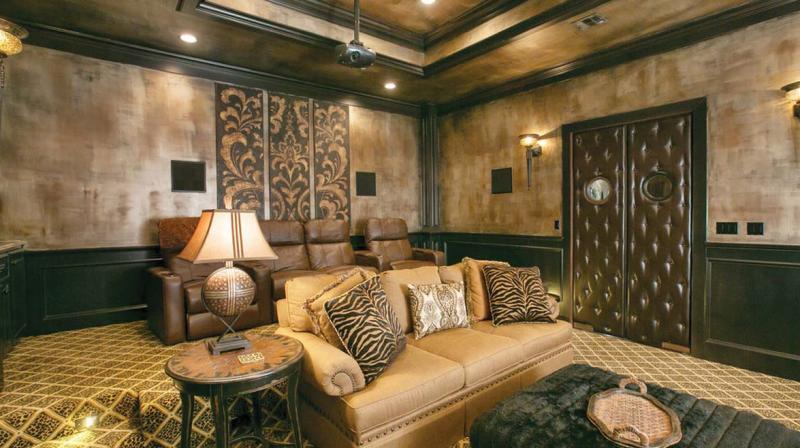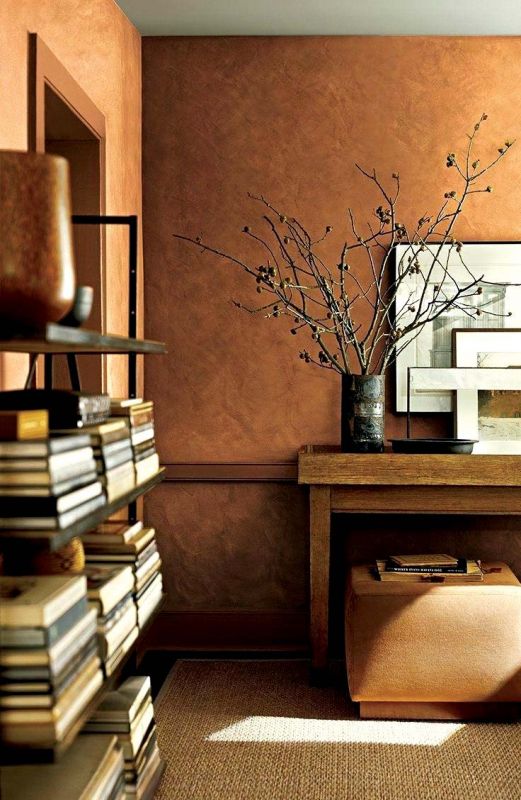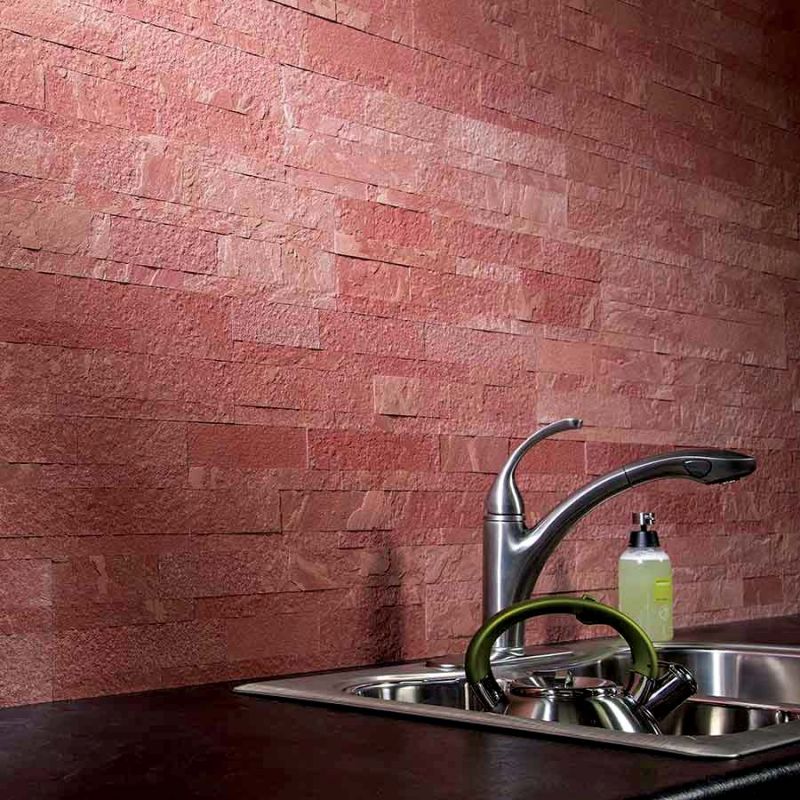Those FAUXY WALL stories
A mock wall that has a tale to tell, these artificial finishes can infuse colour and depth to that ordinary bland background...

The interior walls of a home can sometimes define the type of person living in it. A house with walls in just one solid colour tends to get a bit boring and drab. So, many people prefer to change the walls to hues or different shades to add punch to the ambience. That is where faux finishes rule the roost, and give your walls an identity and class. Faux finishes can help spruce up any wall and turn it into a statement, be it that drab corner that needed some colour infusion or the corridor that needed brightness. There are a wide range of finishes that one can choose from — Glass mosaic, mirror, laminate and many more. But, what works best for your personal space? Interior designers in the city speak about the type of finishes that can be used, and the ways in which we can enhance a wall to tell a story.
Textured paint pitted finish
Textured paint pitted finish is a technique where a combination of colours are used normally as a base and top colour. This is a cheaper way to replicate a concrete wall effect. City-based interior designer Rani Bharathan elaborates, “Textured paint pitted finish can be used to brighten up any wall. When a particular type of roller and technique is used, the bottom colour comes out well. If one wants to indulge in a very expressive colour like gold and grey, with this finish one can find bits of gold popping out. Pitted basically means dots similar to those one sees on a concrete wall. A wall like this can be enhanced with proper lighting as well, which endows it with a special hue.”
Brushed suede finish
This particular type of finish has a sheen and scattered texture to it. When a wall is given this effect, the general appearance is of some places where the colour is dark and other places where there is a lighter play. City-based interior designer Kate Jose explains, “This faux finish is pretty straight forward, and it uses a satin texture. It depends on the type of brush you pick, and also the stroke of the hand. The faux finish uses a dark shade underneath, and a lighter one on top, depending on the colour palette you use. One can spot two colours — darker grey and a lighter one. Furniture around the statement wall should compliment the colours being used. “In order to enhance the overall look, one or two vintage pieces can be added for drama, but I can even visualise a few contemporary pieces.”
Textured sand finish
Textured sand finish is achieved when sand particles and glue are mixed into paint. The market now has sand textured paint that can be used to obtain this particular affect. City-based interior designer Soumitha Roy feels that this finish is more natural, “When one uses this finish, which is essentially earthy or cement, the element around it should be natural as well, for example, a wooden table. A great way to enhance this would be to add the delicate hues of a copper or bronze light with a matte finish and a wooden table.” The designer feels that when opting for an earthy look, glass is not recommended. “But a glass lamp can be used when the textured wall is white, giving it a contemporary look. And if one wants to use a sofa to decorate, the upholstery should be less dramatic,” she adds.
Stone finish
The theme and interiors play a huge role in what stone finish you choose. Ravi Roshan, a designer explains, “When the statement wall is small, large blocks of stone cannot be used as it will not lend the proper aesthetics. A lot of factors depend on the type of stone finish, like the ceiling height, ambience etc. If the theme is colonial, the upholstery selected cannot be purely contemporary, a mix of contemporary and modern with contrast curtains is wise. Minimal is the way forward.”



